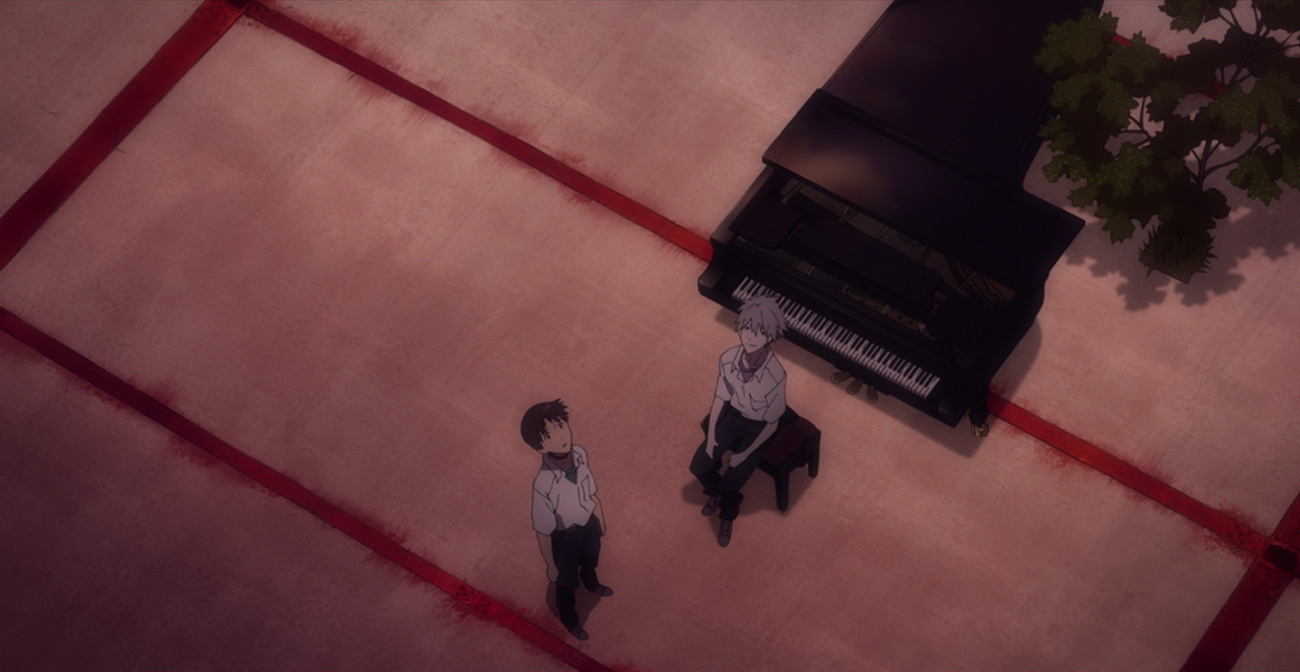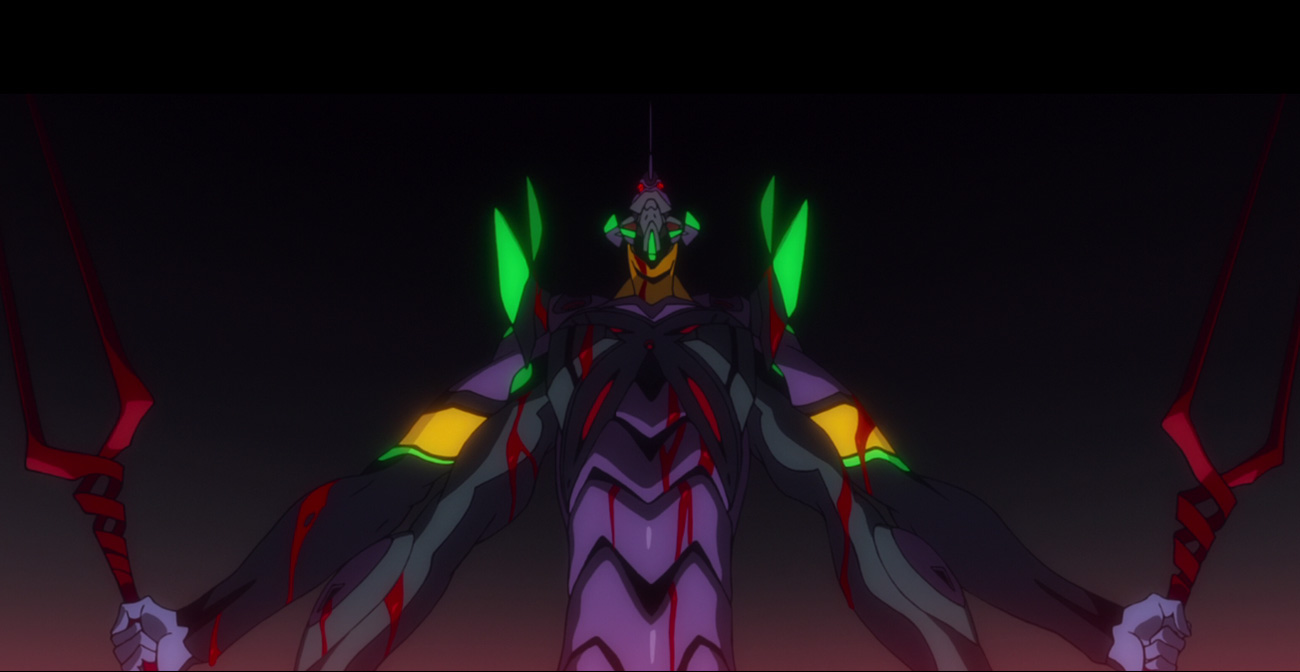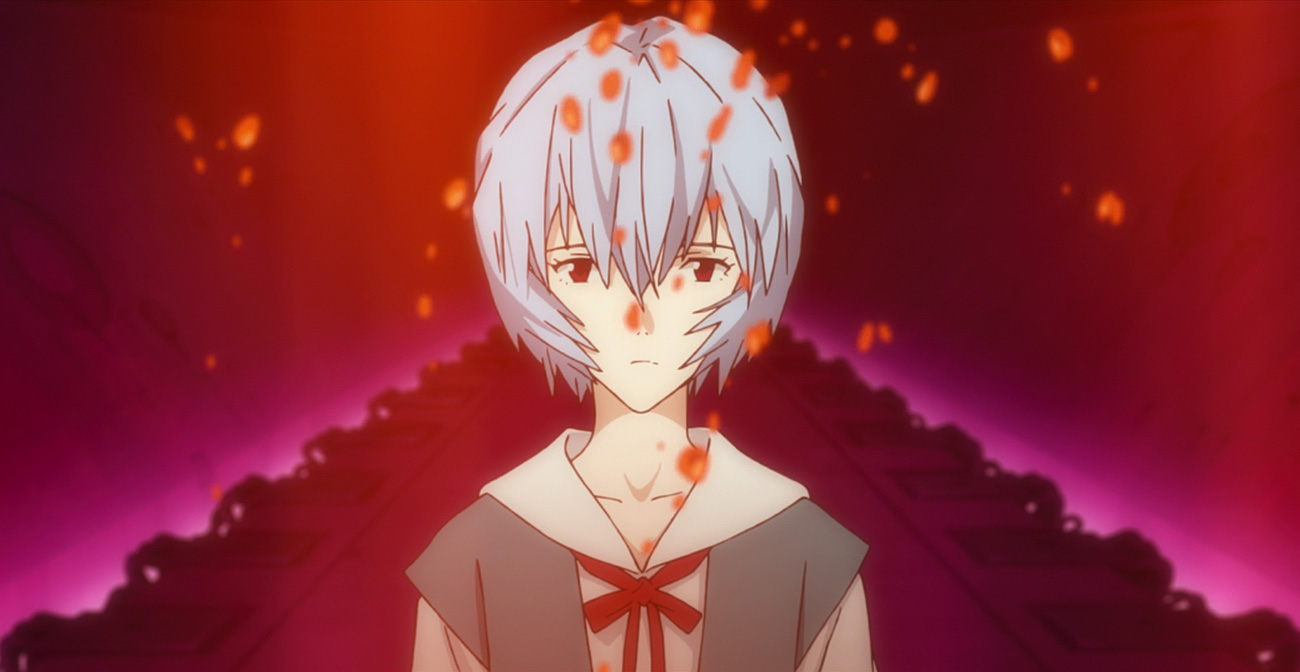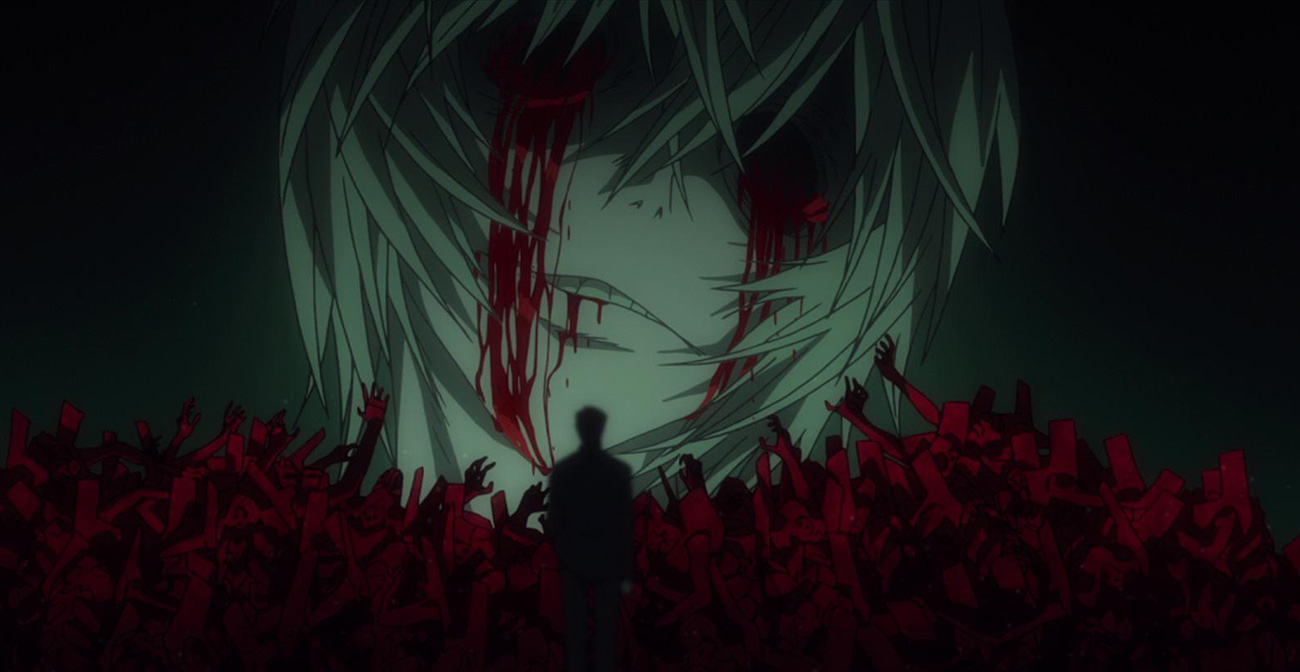A version of this review originally appeared in Japan Cinema as part of Reel Anime 2013 coverage.
When Neon Genesis Evangelion was first released to the public, the series was praised for being more than just an average mecha anime. Often heralded as a masterwork of Japanese animation, the series has been frequently cited as one of the best anime shows to have ever been produced. The infamous final two episodes of the series, however, left the show on an ambiguously unsatisfactory ending. Fans were outraged — some even sent death threats to series creator, Hideaki Anno, for ruining their beloved show. In response, Anno created, Death & Rebirth and End of Evangelion, two theatrical releases in Japan that once again drew strongly divisive opinions over the quality of the series.
When it seemed like Anno was through with the past, a new “Rebuild of Evangelion” series was announced. Eager fans were salivating at the thought of a revision to the popular anime series — one that wouldn’t be bogged down by budgetary constraints or creative control. With new technology and enough resources at his disposal, Anno expressed his enthusiasm for this new series of theatrical releases which he envisioned as the definitive Evangelion experience. Though the first film in the Rebuild series was more or less an abridged version of the first few episodes from the original show, the second film would take the Rebuild series into unforseen territory.
The latest entry into the Rebuild series, Evangelion 3.33: You Can (Not) Redo, is the most exciting yet, as it steers the film into a boldly unexpected direction and leaves the door open to a world of unpredictability. But, history has a funny way of repeating itself. Upon the release of the third Evangelion film, many fans still expressed disapproval of the direction Anno had taken the beloved series for a third time.

After the events of the second film, Evangelion 3.33 sees series protagonist Shinji Ikari wake up to an unfamiliar world. Former friends have become enemies and the world Shinji knew has now been irrevocably shaped by his actions. With no one to turn to for help, Shinji finds solace in an enigmatic new Evangelion pilot, Kaworu Nagisa.
Admittedly, while there isn’t a lot going on narratively with Evangelion 3.33, one can’t help but assume that the film, and perhaps the entire Rebuild series, is Anno’s way of releasing his frustration with the Evangelion fanbase. For some, Evangelion 3.33 will be an awe-inspiring spectacle that boasts an immaculate production. For others, it’ll be a complete mess of a film that disregards and betrays previous iterations of Evangelion, including the Rebuild series itself.

Wherever people’s opinions may lie, be it positive or negative, it would appear that Anno has had enough after multiple attempts to restart and re-evaluate his own series. By using the film, Anno directs his middle finger to the Evangelion fanbase and does so by positioning the fanbase within Shinji. Throughout the film, Shinji struggles to comprehend anything that is going on — much like anyone who watches Evangelion — and wants so desperately to fix things back to the way they should be. He isn’t happy with how everything has turned out yet no matter how much Shinji wants to change the situation, he will inevitably be resigned to the same disappointing outcome — something that has happened in all previous iterations of Evangelion. Some may interpret this as Shinji recreating the world every time he fails to save it. With every reset, Shinji repositions himself as a messianic figure doomed to repeat a cycle of failure.
Through Shinji, Anno may be expressing how he feels about the Evangelion fanbase, and perhaps of fan culture at large. No matter how many times the fans want new ways for the Evangelion series to end or how they want to read into the series, they’ll always be given a similar outcome that only Anno would approve of. In that sense, the title of this film, You Can (Not) Redo, is more than applicable both to Shinji’s need to repeat scenarios in order to save himself and the world, as well as the fanbase’s need to recreate the series to fit within their own satisfied image and understanding of it.

Aside from this reading of the film, there’s still plenty to enjoy with Evangelion 3.33 including its incredibly polished art direction and its fittingly epic score by Shiro Sagisu. Anno and his team have outdone themselves as Evangelion 3.33 features the most invigorating action scenes in the series to date and the most astonishing animation work of any action-packed anime film. Mindblowingly cool, everything about Evangelion 3.33 looks and sounds terrific in spite of its rather thin narrative.
To some degree, Evangelion 3.33 can be viewed as unnecessary filler — it exists solely to bridge the gap between the second and final films. Some of the plot points in Evangelion 3.33 are crucial to the development of the series’ overall narrative while other plot points that are introduced are ignored or not talked about altogether, such as the halting of the Eva pilots’ age or the 14 years in between Shinji’s coma. Additionally, characters with more exposure in the previous films have either been relegated to smaller, almost insignificant roles or have been killed off or not mentioned altogether. Yet despite these glaring problems, Evangelion 3.33’s thrilling set pieces and sense of unpredictability nevertheless redeem any narrative issues that the film suffers from.

Evangelion 3.33: You Can (Not) Redo is a bold, confrontational experience and is the best entry into the series to date. With some of the most incredible animation, it’s an exciting and dazzling spectacle to behold, even if the story doesn’t look like it’ll always hold up. By this point of the series though, even if certain things don’t feel like they make sense, perhaps they aren’t meant to. Perhaps looking for meaning or a sense of closure in the series after three attempts now is futile. Maybe we should just try our best to go along with the ride and enjoy what’s to come (and it’s been a pretty damn amazing ride so far).
No other anime series, it seems, has inspired so much discussion and debate over its legitimacy – will Evangelion be remembered as a misunderstood masterpiece or an overrated mess? This, it seems, is the legacy, or rather the curse, of Evangelion.
